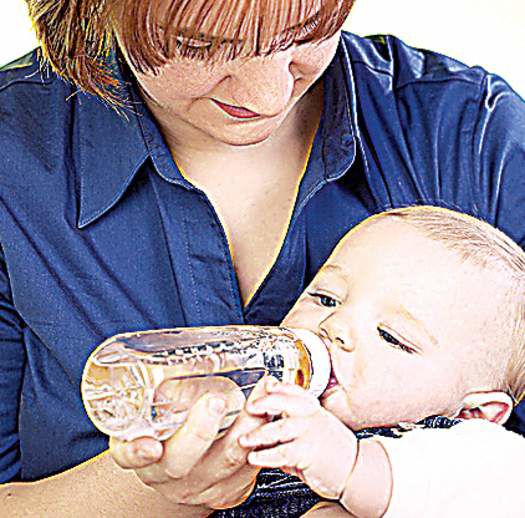Breastfeeding a child who isn’t your own
Published 5:00 am Thursday, June 25, 2009

- A mother’s excess breast milk is donated to a milk bank, where it’s screened and then shipped to other moms in need.
DETROIT — Even as she nursed her own newborn son, watching him grow from nearly 8 pounds to 23 over the past year, Kristy Thornburg also provided nourishment to other babies whose own mothers could not.
Thornburg, 30, of South Boardman, Mich., is a breast milk donor. She has pumped, stored and shipped nearly 7,000 ounces of the life-sustaining elixir to Michigan’s only breast milk donor bank, operated out of Bronson Hospital in Kalamazoo. The human milk that Thornburg produced, as well as contributions from other donors, is processed to feed premature and sick babies whose mothers can’t produce breast milk on their own.
Doctors prescribe breast milk because it is easily digested, has nutrients and antibodies that newborns need, and it decreases the likelihood of infectious diseases, allergies and auto-immune conditions.
The three-year-old Bronson Mothers’ Milk Bank is one of eight nonprofit milk banks that ship donated milk throughout the country.
The roots of the practice date to ancient times. In Michigan, the forerunner to the Bronson program was the Mothers’ Milk Bureau, founded in 1912, at what is now Detroit’s Hutzel Hospital.
“Premature babies have so many problems if they’re not given human milk,” said Cindy Duff, the registered nurse who runs the Bronson program. “If there’s not enough mother’s milk, donor’s milk is the next best choice.”
The Kalamazoo facility takes milk donated from lactating women, who undergo a health screening. Donors’ milk is combined, pasteurized and tested for contaminants, which can make the milk quite costly.
Born in October, Cale Bailey of Georgia could not tolerate any formula and his mother couldn’t produce enough breast milk to nourish him. He shrunk from his birth weight of nearly 8 pounds to 4 pounds.
When Cale was 2 months old, his doctor wrote a prescription for human breast milk. The donated milk he got from the Michigan milk bank has restored his health. Four months later, he weighs more than 10 pounds.
“It’s some good stuff,” says Cale’s mother, Crystal Bailey, 27, of Milledgeville, Ga. .”
The Bronson Milk Bank is working with the Baileys as they try to get health insurance — which varies from plan to plan and state to state — to cover the costs of providing breast milk to Cale, nearly $1,400 a week.
In Michigan, Thornburg is glad she was able to help.
After her son Kyle was born in January 2008, Thornburg routinely breastfed him on demand. She also pumped and stored milk so other family members could bottle-feed Kyle. But Kyle never took to the bottle. By then, she had a freezer full of breast milk and got in touch with the milk bank.
“I didn’t want the milk to go to waste and I was happy to do it to help someone else,” she said.
In the past three years, the Bronson milk bank has processed 220,000 ounces of donated milk. The roster of donors grows every year, from 98 in 2006 to 183 donors last year. The donors have included women who’ve delivered stillborn babies, but chose to donate.
Women are rigorously screened for medical conditions, much as blood donors are, before they’re accepted as participants. Nearly half are turned down, usually because of medications they’re taking.
How to donate
Eligibility requirements: If you are currently breastfeeding and want to be a donor, you also must be a nonsmoker, not regularly consume medication, including mega-vitamins, and can’t drink alcoholic beverages. Women who’ve lost a newborn also can donate their breast milk.
Testing: The donor bank will cover the cost of a blood screening test and shipping a milk sample. The screening will include testing for HIV, hepatitis and other conditions. You’ll have to fill out a detailed health form, and your primary-care physician and the baby’s doctor also will be contacted.
Contact: Supervisor Cindy Duff at Bronson Mothers’ Milk Bank. 601 John St., Suite N1300, Kalamazoo, MI 49007. Call 269-341-8849 or e-mail Duffc@bronsonhg.org. The Bronson milk bank is one of eight nonprofit operations in the country.






